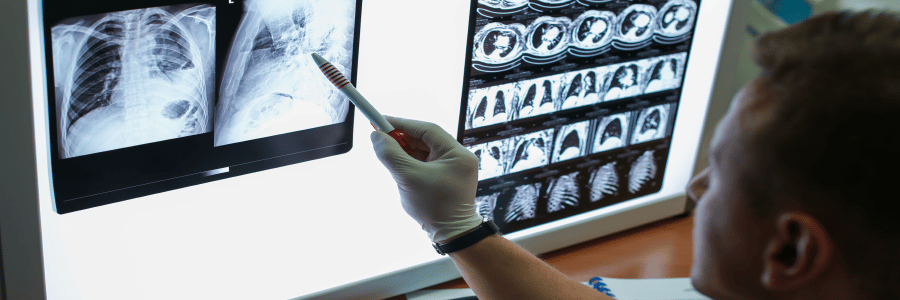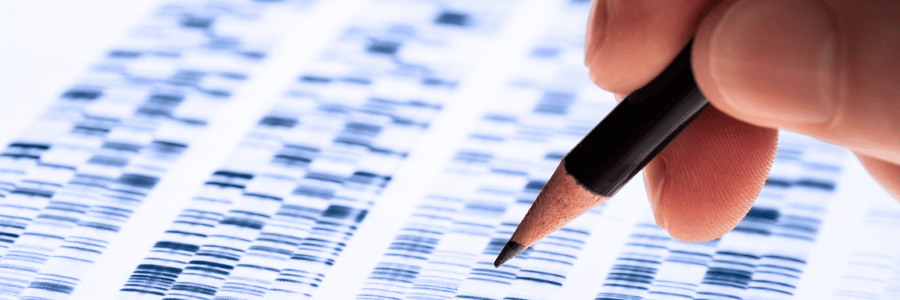Lung Cancer Symptoms
August 3, 2022
People usually worry about lung cancer after signs and symptoms appear. Early cancer typically does not have symptoms. In fact, people can have lung cancer for several years without showing symptoms.
Could you have lung cancer? The short answer is maybe, but you need to get tested. Here are some symptoms you should pay attention to.
- Coughing that gets worse over time.
- Coughing up blood or reddish spit.
- Chest pain that gets worse when you breathe, and persistent chest pain.
- Lung infections that occur frequently.
- Hoarseness.
- Weight loss that is unexpected or unexplained.
Getting Screened
You may be surprised to learn that you cannot definitively diagnose lung cancer with a blood test or even a chest x-ray.
The U.S. Preventive Services Task Force, a group that recommends medical standards in the U.S., says the best screening test for lung cancer is a low-dose CT scan. But only if you meet some specific criteria. You should:
- Be 50-to-80 years old.
- Not have any of the symptoms listed above.
- Be a current smoker or have quit smoking in the last 15 years.
- Have a smoking history of 20 pack-years, an estimate of your smoking consumption. Calculate pack years by visiting this site.
What’s My Lung Cancer Risk?
While smoking is the leading cause of lung cancer. It’s not the only cause. Other risk factors include:
- Secondhand smoke. You risk developing lung cancer if you hang around people who smoke, even if you do not. Breathing their smoke can still damage your lungs.
- Radon gas. This odorless gas seeps out of soil and rock and into the air. While radon is not dangerous outdoors, it can seep in and reach dangerous concentrations if it emerges under a home. Because of our geology, homes in Georgia are at higher risk of elevated radon gas than homes across the U.S. The only way to detect radon is by testing for it. Kits are widely available.
- Asbestos. Asbestos fibers threatened workers with frequent contact with asbestos when it was used as insulation, including construction workers, firefighters, and others.
- Air pollution. Exposure to persistent air pollution can be a contributing factor in the development of lung cancer.
- Family history of lung cancer. If the disease runs in your family, you have a higher risk of developing it.
Get the Care You Need
If you’re experiencing the symptoms listed above and have been exposed to some or all of the risk factors, you should discuss your screening options with your doctor. If you need a primary care physician, book your appointment online at gradyhealth.org, use MyChart, or call (404) 616-1000. We’ll arrange an appointment at a Primary Care Center near you. Doctors there can treat most conditions and provide access to Grady’s unparalleled medical specialty expertise.

Advertisement

